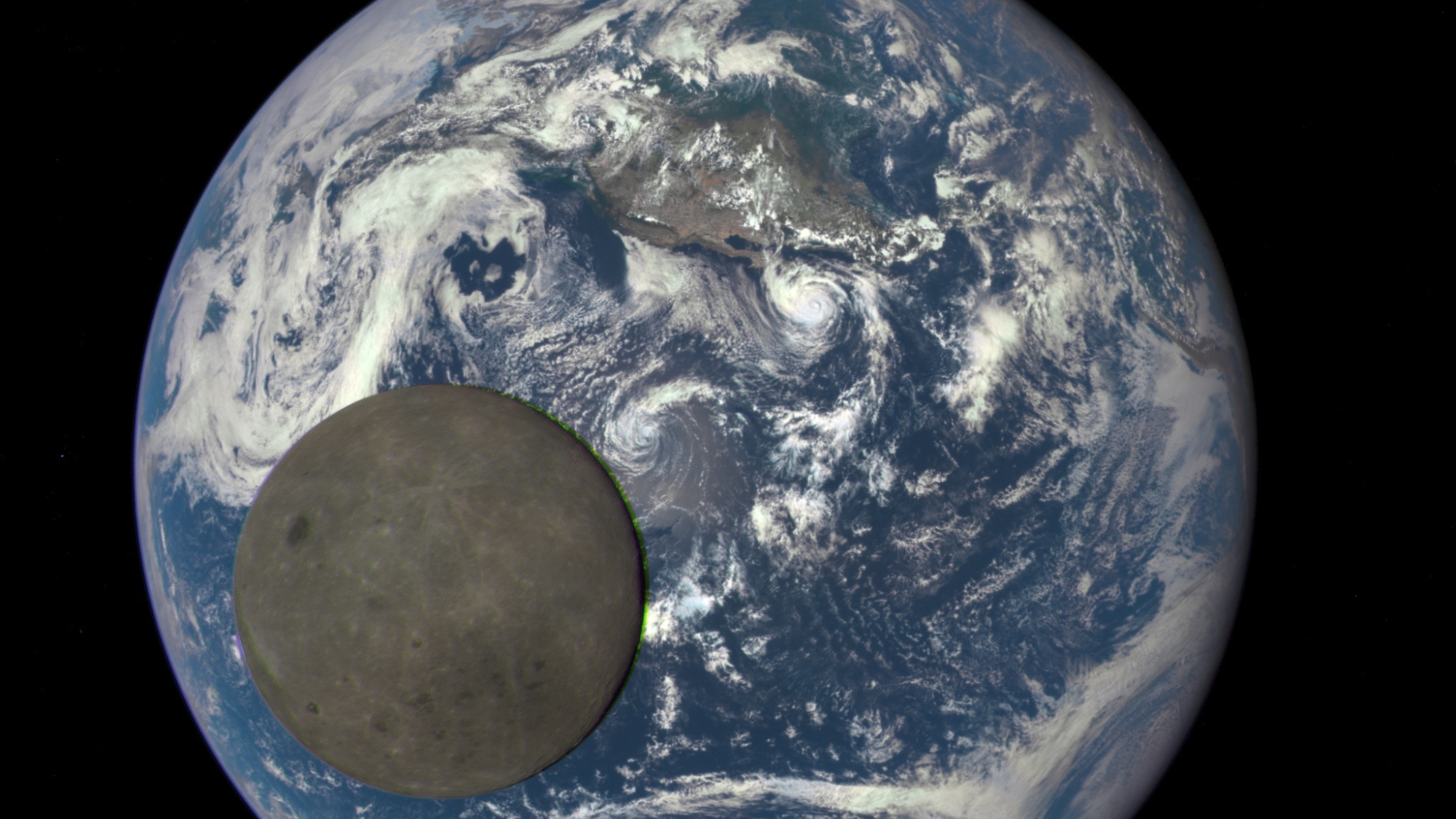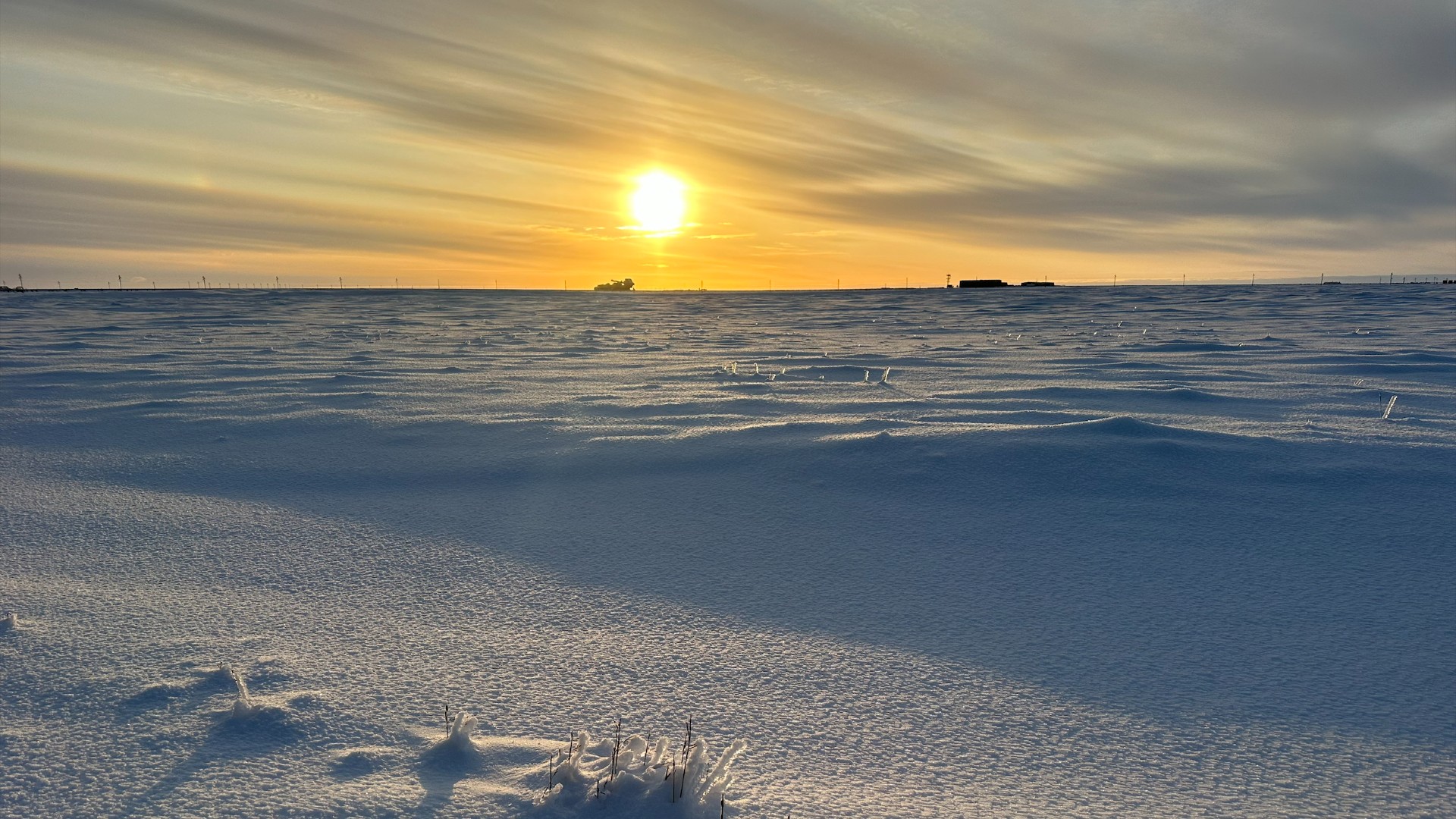We have the satellite data to show climate change is real. Now what?
"Unfortunately, the timing of the political agenda sometimes doesn't always align with the climate ambitions we should all have."

Space programs are often concerned with what's happening "out there" in the universe, a large portion of what space agencies like NASA and the European Space Agency (ESA) do is monitor what is happening on the surface of the Earth. This includes keeping track of things like weather, but also human-induced drivers of global warming such as the emissions of greenhouse gasses, deforestation and changes in seasonal ice coverage in Arctic and Antarctic regions. That's important because research has shown human activities are indeed the primary drivers of climate change.
Since 1972, the U.S Geological Survey Landsat Earth Observation satellites have been providing scientists and policy makers with up to date data on a range of features of Earth's surface, and the picture being painted is a grim one. Earth's surface is changing rapidly: polar ice caps are shrinking, highly biodiverse areas are being destroyed , and oceans are growing increasingly polluted, among a raft of other environmental changes.
However, given the volume and availability of data that satellites have captured informing us of the ongoing impacts of human activity on Earth's surface, an important question has to be asked — why has this knowledge not led to large-scale environmental action?
"We can track how much ice the Greenland and Antarctic ice sheets are losing using satellite observations of changes in their volume, ice flow or gravitational pull. The ice sheets cover vast regions and only satellite observations can help us chart how much ice they are losing and gaining," Inès Otosaka, Director for Operations of the NERC Centre for Polar Observation and Modeling (CPOM), told Space.com.
Related: How satellite data has proven climate change is a climate crisis
Tools vs solutions
Space-based satellites and their ability to observe real-time changes in the atmosphere, along with mapping seasonal and gradual changes in Earth's features such as ice coverage, have radically changed the information landscape in terms of what we know about our relationship with our dynamic planet.
But having the capacity to witness these changes without a clear path towards solving them has been frustrating for many. One pathway forward, suggests Karen Jones, a Senior Policy Analyst at the Center for Space Policy, is increasing accountability.
Breaking space news, the latest updates on rocket launches, skywatching events and more!
In a recent paper, Jones explains how the merging of satellites with terrestrial and airborne sensors can create an integrated Earth observation data system, which can help identify problematic sources of greenhouse gas emissions such as methane from animal stocks, leaking from fracking operations and busted gas pipelines.
To turn this data into action, Jones says we need to work across disciplinary silos so the space industry,policymakers, landowners, industry and civil society groups can work together to address issues identified by satellite climate observations.
How do we get there? Freely available, open-source data encourages involved parties to be transparent and to cooperate with regulators. It also generally promotes good behavior, climate-wise. Such data release efforts can also empower academics, civil society groups and citizen scientists to work with raw data in ways that can hold polluters or exploiters accountable. One example of this type of interplay is SkyTruth, a nonprofit that lends technical expertise on satellite imagery to Global Fishing Watch, an ocean conservation organization that tracks illegal fishing activity.
The private sector also has a role to play. For instance, we have known for some time that Arctic sea ice is melting. This ice plays an important role in regulating global temperatures as it reflects sunlight back out into space. Recently, U.K start-up Real Ice tried refreezing Arctic sea ice by pouring sea water back on top of the ice to make it thicker and more resilient to melting in the summer months, with promising results.
"In addition to rising sea level, ice sheet melting has far-reaching consequences on the global climate system. The ice sheets are predominantly white and thus help regulate Earth's temperature by reflecting the incoming heat from the sun back to space. The resulting meltwater from ice sheet melting could also potentially affect ocean circulation patterns," Otosaka said.
Economics and environment
The elephant in the room here, really, is having our energy, transport and agriculture sectors continue to rely on fossil fuels for energy.
To see large-scale transitions away from cheap, yet harmful forms of energy, and towards renewable sources, you really need political will that transcends partisan politics (priorities often change as governments come and go), and economic incentive, particularly in a world economy that is still recovering from a global pandemic.
"Unfortunately, the timing of the political agenda sometimes doesn't always align with the climate ambitions we should all have. To address this, we need to continue our efforts to produce robust and reliable information on the ice sheets and sea level rise, and communicate with the general public, stakeholders, politicians, the media and anyone interested in this topic," Otosaka said.
Climate change and other environmental crises show that we are yet to integrate our global economic system with the physical environment. It can be hard to motivate people into action unless the problem is at your doorstep, so a balance needs to be struck between long-term thinking, and quality of life in the short term. By 2050, global energy demand is expected to grow by 50%, while the COP26 climate agreements have us reaching not zero by 2050.
How will we power the future? That's the ultimate question.
This article is part of a special series by Space.com in honor of World Space Week 2024, which ran from Oct. 4 to Oct. 10.

Conor Feehly is a New Zealand-based science writer. He has earned a master's in science communication from the University of Otago, Dunedin. His writing has appeared in Cosmos Magazine, Discover Magazine and ScienceAlert. His writing largely covers topics relating to neuroscience and psychology, although he also enjoys writing about a number of scientific subjects ranging from astrophysics to archaeology.
